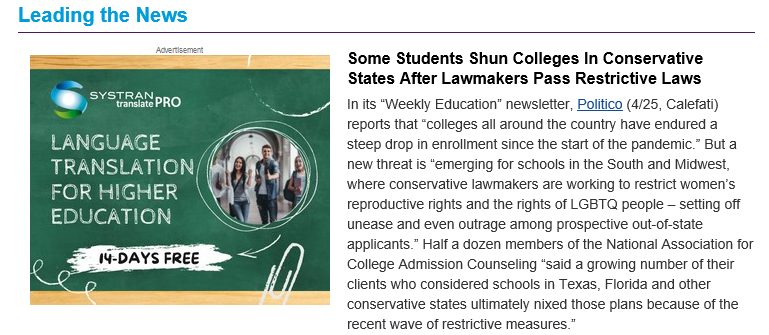
Thread: I tweeted about this yesterday (sort of sardonically), but of course this is picking up some steam now, as you knew it would. 

First, students have always included destination in their list of things that are important. I remember a counselor in Florida in the 80's telling me that "Boston had become hot" for her students.
It's always in the top three among student motivators.
It's always in the top three among student motivators.
And while I hate to criticize journalists who talk to six people and make it a "trend" (because the people they talked to volunteered after seeing a question on a list serve asking if they'd noticed this), it's still worrisome.
Why?
Why?
Who has the luxury to cross state lines to go to college? I suspect you know the answer to that. But in 2018 and 2020, about 2/3 of all high school seniors enrolled in a public university in their state. highereddatastories.com/2021/11/freshm… 

Some substantial percentage of students who cross state lines are students of means. While we used to talk about "fit" as it refers to personality and character match, it's more often about affordability these days. (Florida and Texas send about 75% to in-state public 4-years).
So while that headline and takeaway would be good news for universities in blue states (like Oregon), I'm going to have to be persuaded that this is a real thing, affecting large numbers of students before I get excited.
We are currently up one application in Alabama over last year, 29 in Florida, three in Ohio, up 16 in Louisiana, down 10 in Oklahoma, and flat in Arkansas.
These are blips. Could they be driven by politics? Yes. Are they? Probably not.
These are blips. Could they be driven by politics? Yes. Are they? Probably not.
So if you work in a blue state, you'll hear about this. If you work in a red state, you'll get people asking about whether it might work in reverse.
Just be aware of what the reality is.
Just be aware of what the reality is.
Oh, and #EMTalk
• • •
Missing some Tweet in this thread? You can try to
force a refresh






